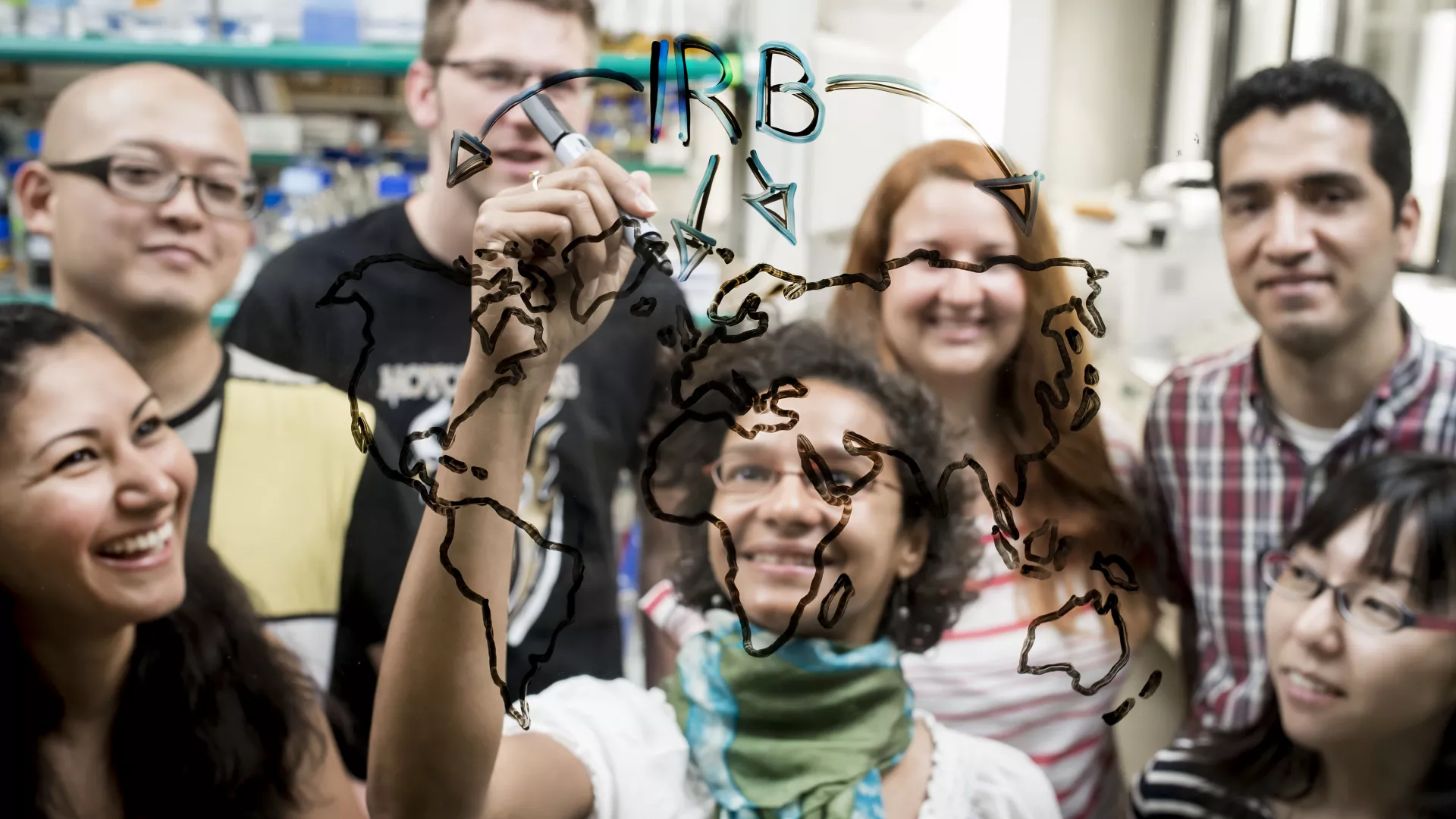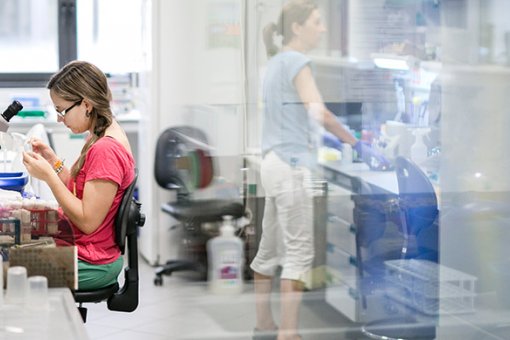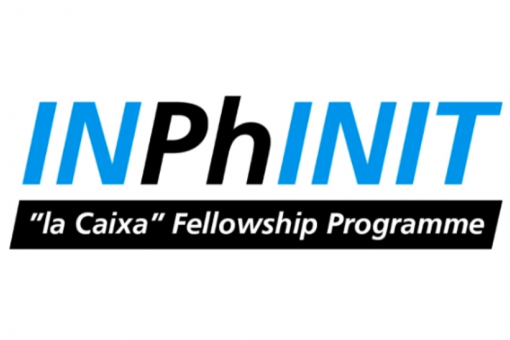Predoctoral positions available in the "Contratos predoctorales para la formación de doctores" call (FPI 2014)
(Formerly FPI predoctoral fellowships)

One key objective of IRB Barcelona is to train future scientific leaders in a competitive international and multidisciplinary scientific environment. IRB Barcelona focuses its efforts on developing the scientific careers of more than 130 PhD students. The advanced research training programme includes specific scientific and technology courses and seminars, lab management workshops, media training and career development sessions.
Funded by the MINECO (Ministerio de Economía y Competitividad), the FPI Programme (Formación de Personal Investigador – Research Personnel Training) offers predoctoral positions covering a 48-month period. The PhD is performed in subjects associated with research projects (financed through the MINECO’s R+D+i National Plan call).
Eligibility
Students who have been enrolled or admitted into a doctorate program in the 2014-2015 academic course on a doctoral program in Biology, Biochemistry, Pharmacy, Physics, Medicine, Chemistry or related areas at the time the formalization of the contract.
The research projects to be granted a 2014 FPI Predoctoral position are:
- Peptides as therapeutic agents: modulation of protein-protein interations and brain delivery
PI: Dr. Meritxell Teixido/Prof. Ernest Giralt (Design, Synthesis and structure of Peptides and Proteins Laboratory)
This project addresses a highly relevant challenge in contemporary medicinal chemistry, namely the delivery of drugs to the brain. Efficient strategies to deliver drugs to the brain are another unmet need in medicinal chemistry. We and other laboratories have recently shown that some peptides are able to efficiently cross the blood-brain barrier (BBB) by means of passive diffusion or active transport mechanisms. We now plan to expand these preliminary results in a more systematic way in order to indetify peptide molecules that can be used as BBB-shuttles for brain delivery of drug cargoes. And why not peptide BBB-shuttles able to cross this barrier selectively to reach specific brain regions.
With this aim, we will explore several strategies including: mass spectrometry-driven screening of large peptide libraries; ii) in vitro cell-based BBB models; iii) brain microdialysis.
Our PhD project starts with a 1st stage in which, from a large and highly diverse library of protease-resistant peptides and using braing microdialysis and mass spectrometry, we will identify peptides able to reach specific brain regions. The 2nd stage will elucidate the transport mechanism involved.
- Physiological functions of the RINGO proteins, a family of atypical CDK regulators
PI: Dr. Angel Nebreda (Signalling and Cell Cycle Laboratory)
Cyclin-dependent kinases (CDKs) are a family of protein kinases that play key roles in the regulation of the eukaryotic cell division cycle. CDK activity is normally modulated by association with regulatory subunits named cyclins. We have identified a new family of proteins named RINGO that can bind to and activate Cdk1 and Cdk2 but have no amino acid sequence homology to cyclins. RINGO proteins play an important role in the regulation of G2/M progression during the meiotic maturation of Xenopus oocytes. Biochemical studies indicate that RINGO-activated CDKs can phosphorylate substrates on different sites than the CDK/cyclin complexes. Moreover, CDK/RINGO complexes can be potentially active under conditions where cyclin-bound CDKs are inhibited, suggesting that they can play specific regulatory roles. The aim of this proposal is to elucidate physiological functions of the mammalian RINGO proteins, with emphasis on their role in cell division through the regulation of CDK activity. In particular, we want to elucidate whether and how these atypical CDK activators control cell cycle progression and the DNA damage response, as well as their importance for tissue homeostasis.
- Signaling Molecules and Growth Control (SIGNAGROWTH)
PI: Dr. Marco Milán (Development and Growth Control Laboratory)
During the development of a given tissue or organ, growth (accumulation of cell mass) and cell proliferation (cell number) are controlled in a coordinated manner by the activity of a discrete number of signalling molecules such as Wingless, Dpp and Hedhehog, to give rise to well-formed structures with a particular size, cell number and shape. During the last two decades, the Drosophila wing primordium, a monolayered epithelial invagination that grows 1000 fold in mass and cell number, has provided a suitable model system to analyze the role of these signaling molecules and the interplay between their corresponding signaling pathways in the control of size in normal development. In the last few years, the Drosophila wing primordium has also become a powerful model system to underscore the molecular mechanisms and signaling molecules involved in stress-induced tissue homeostasis and oncogene-mediated tumorigenesis.
How to apply
Interested candidates are encouraged to contact the project leaders to express their interest in applying to this call and then send a CV, cover letter and names of two references.
For any question please contact us at: irb.research.grants@irbbarcelona.org
Please indicate ref “FPI 2014 candidate interest” in the subject.
Please check the FPI 2014 call text: http://www.boe.es/boe/dias/2014/09/08/pdfs/BOE-A-2014-9185.pdf
Call application period: 23 September 2014
Formal applications have to be submitted by students directly to MINECO.
Additional information can be found here: https://sede.micinn.gob.es/ayudaspredoctorales
More information regarding the IRB Barcelona PhD programme here.



